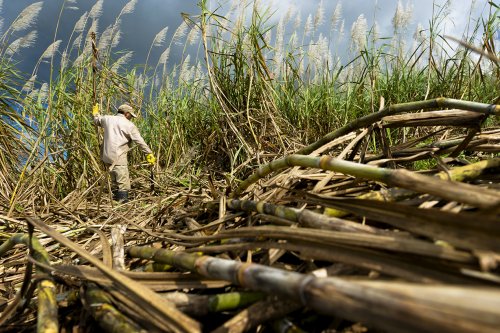Business Standard | 13 October 2017
India-Mauritius to restart FTA talks soon
by Dilasha Seth
India and Mauritius are set to revive talks for a free trade agreement (FTA), following a revision of the bilateral tax treaty last year that gave India the right to impose the capital gains tax on investments routed through the island nation.
More than economic significance, the trade talks are of strategic importance to strengthen New Delhi’s presence in the Indian Ocean region to counter China’s mega investment plans through its one-belt-one-road (OBOR) initiative.
“Economically, we do not see much benefit as it is a small country with a population of a million people. What can they produce and what can they supply to us? Similarly, what can we supply to them?” a government official said, adding that the FTA, called the Comprehensive Economic Cooperation and Partnership Agreement, was more of a friendly gesture.
Nevertheless, Indian negotiators are going to pitch for the facilitation of services trade in the pact, with a focus on tourism, hotel industry and financial services. The official-level talks started last week, and the next round of discussions will be in Port Louis by the end of November.
Mauritius is a major sugar producer, manufacturing 400,000 tonnes of sugar per annum. Besides, it has a significant marine economy.
India’s exports to Mauritius grew 3 per cent in 2016-17 and made up 0.3 per cent of its overall outbound shipments at $881 million. Imports from Mauritius were insignificant at $18.4 million in 2016-17, accounting for 0.0048 per cent of India’s total purchases. However, Mauritius is the single largest source of foreign direct investment (FDI) to India. FDI inflows from Mauritius to India stood at $15.7 billion in 2016-17, making up 34 per cent of total FDI inflows to India. The FDI flow may have slowed after the amendment of the double taxation avoidance treaty in April.
Another official added that New Delhi may give more to Mauritius in tariff reduction. “With Mauritius we will be a little liberal,” he said.
For India, the pact will be of geopolitical and strategic significance to improve its presence in the Indian Ocean in view of China’s aggressive push in the region.
“One has to keep in mind that China is influencing Mauritius and other countries in the region to a large extent by extending lines of credits and other investment instruments. India should also economically strengthen its interest,” said Ajay Sahai of the Federation of Indian Exports Organisation.
He added that as for economic partnership, there could be products supplied by India to Mauritius, since it had a huge tourism sector. “Right now, products in Mauritius mainly come from Dubai. India could look at that space. Besides, in services, we could look at joint ventures in tourism and adventure tourism,” Sahai said.
India extended a line of credit worth $500 million to finance civilian infrastructure projects in Mauritius. New Delhi is also supporting the National Coast Guard of Mauritius in enhancing its capacity. China is planning to invest billions of dollar to build infrastructure, including ports, railways, power grids, etc, across Asia, Africa and Europe through the Indian Ocean as part of its OBOR project.
Biswajit Dhar, professor, Jawaharlal Nehru University, said that a conventional FTA with Mauritius did not make sense. “There is no sense of doing an FTA, unless there is a political and strategic dimension to it. It is part of a larger strategy to counter the growing involvement of China in the region,” he said.
The FTA talks between India and Mauritius were suspended four years ago by New Delhi to build pressure on the latter to expedite the double taxation avoidance agreement. Earlier, tax evaders used to exploit loopholes in the tax treaty with Mauritius being a zero-tax nation, ensuring complete tax avoidance. After the amendment, India has got the right to tax capital gains on shares from April onwards. Firms routing funds into India through Mauritius now have to pay short-term capital gains tax at 7.5 per cent during a two-year transition period beginning April 2017, after which a full rate of 15 per cent will be imposed.
